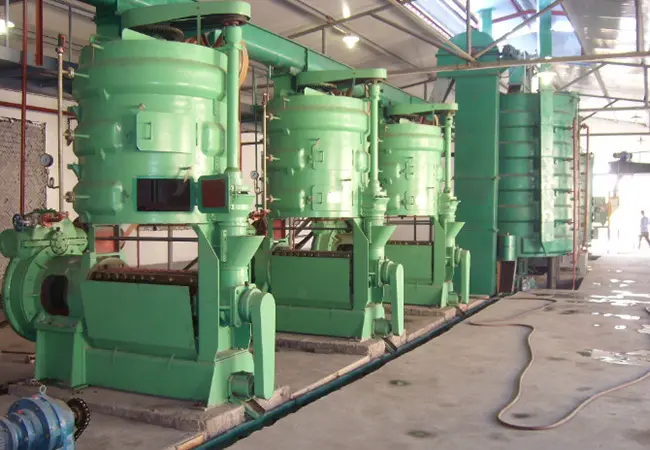Nov . 30, 2024 00:09 Back to list
Refining Processes and Products in Edible Oil Industry
Understanding Food Oil Refining Unit Products
Food oil refining is an essential process in the production of edible oils. This process not only enhances the quality of the oil but also ensures its safety for human consumption. Refining is carried out to remove impurities and undesirable components, making the oil suitable for cooking, frying, and other culinary applications. The primary products of a food oil refining unit include refined oil, by-products, and value-added products, each playing a crucial role in the food industry.
The Refining Process
The oil refining process typically consists of several steps, including degumming, neutralization, bleaching, and deodorization.
1. Degumming The first step involves the removal of phospholipids and gums, which can affect the oil's quality and stability. This is usually achieved by treating the crude oil with a water or acid solution, leading to the separation of gums that can be removed.
2. Neutralization After degumming, the oil contains free fatty acids that can lead to off-flavors and diminished shelf life. Neutralization is performed by adding an alkali solution, such as sodium hydroxide, which reacts with free fatty acids to form soap. This soap is then removed, leaving behind a more stable oil.
3. Bleaching The bleaching stage is essential for removing pigments, impurities, and residual soaps from the oil. This is done by treating the oil with bleaching earth or activated carbon, which adsorbs these unwanted components. The result is a lighter, clearer oil with improved appearance and taste.
4. Deodorization In the final step, deodorization, the oil is heated under vacuum conditions to eliminate volatile compounds that may cause undesirable odors or flavors. This process ensures that the oil has a neutral taste and aroma, making it suitable for various culinary applications.
Products of Food Oil Refining
The primary product of a food oil refining unit is refined edible oil, which can include vegetable oils such as sunflower, soybean, palm, and canola oil
. This refined oil is widely used in households and commercial kitchens for cooking, frying, and food preparation due to its improved stability and neutral flavor profile.food oil refining unit products

Apart from refined oil, refining processes produce several by-products
1. Gums The degumming process generates gums that can be further processed and utilized in the food industry, particularly as emulsifiers or thickeners.
2. Fatty Acids The neutralization step results in by-products of free fatty acids, which can be utilized in the production of soaps, lubricants, and various industrial applications.
3. Bleaching Earth After the bleaching process, spent bleaching earth can be treated and reused or repurposed as a soil conditioner in agriculture.
4. Deodorized Distillates The deodorization process generates distillates that can contain flavor compounds and can be used in flavoring or fragrance applications.
Value-Added Products
Refining not only produces essential cooking oils but can also lead to value-added products that enhance the profitability of refining units. For instance, by producing specialty oils that cater to health-conscious consumers—such as high-oleic sunflower oil or oils enriched with omega-3 fatty acids—refining units can meet market demands and capture niche segments.
Moreover, the trend towards organic and cold-pressed oils has led refiners to develop processes that align with consumer preferences for healthier options. This transformation signifies a shift in the refining landscape, emphasizing sustainability and health.
Conclusion
Food oil refining is a complex yet vital industry that produces a range of products essential for everyday cooking and consumption. With the continuing evolution of consumer preferences towards healthier and more environmentally friendly options, the refining processes are adapting to meet these demands. Understanding the journey from crude oil to refined products not only highlights the importance of this industry but also emphasizes the sophistication involved in delivering safe and quality edible oils to consumers worldwide. As technology continues to advance, food oil refining units are likely to produce even more innovative and value-added products, ensuring sustainability and responsiveness to consumer trends.
-
Premium Black Seed Oil Expeller - High Efficiency Cold Press Oil Machine
NewsJul.31,2025
-
Oil Processing Equipment - High-Efficiency Flaking Machine
NewsJul.25,2025
-
High-Efficiency Peanut Oil Refined Machine for Quality Oil Production Leading Exporters & Companies
NewsJul.08,2025
-
High Efficiency Sunflower Seed Oil Press – Leading Cooking Oil Press Machine Factories & Suppliers
NewsJul.08,2025
-
High-Efficiency Soybean Oil Press Machine – Leading Exporters & Reliable Companies
NewsJul.07,2025
-
High-Efficiency Seed to Oil Extractor – Reliable Extraction Machinery for Your Business
NewsJul.07,2025
